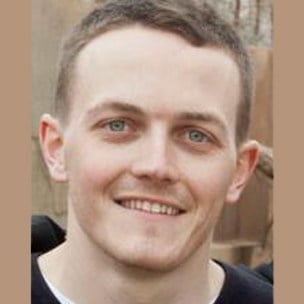What is your PhD about?
I use mathematics to predict what happens when infectious disease outbreaks occur at schools then try to find ways of reducing their impact. I use mathematical models of disease – we can’t always observe outbreaks as they occur but we do need to plan for them and simulating outbreaks on a computer is easier and less messy than experimenting on lots of sick children in schools. Once we have a good idea of how an outbreak behaves we can consider ways of stopping or slowing the outbreak. For example, would closing schools be helpful? Do we have a vaccine for the disease and if so, who should get it first? How much would all these things cost and can we find a method that is more cost-effective than the others?
How did you get involved in this field of study?
During my studies for my degree I had to do a group project in my second year after our summer exams. We concentrated on modelling the SARS epidemic in Hong Kong 2003 and loved every minute of it – we were applying the mathematical techniques acquired over two years of lectures to a real-world problem. We found very accurate ways of modelling the epidemic which could then be used to predict the outcome of future epidemics of similar diseases. After that, I was hooked – I finished my degree a year later and started a Master’s degree in Modern Epidemiology, focusing on modelling epidemics.
What jobs are available to people who study something like this?
Unfortunately there will always be new outbreaks occurring in different parts of the world, whether in humans or in animals too. People who’ve been in this field can work on creating new vaccination programmes at Public Health England or other public health organisations around the world. Organisations involved in combating epidemics all over the world need people to run simulations of the epidemic to get a good idea of what’s going on and what impact their work will have. Many civil service organisations need people with these skills too (e.g. NHS, DEFRA, the Ministry of Defence, etc.).
What’s the next step for you in your career?
After finishing my PhD I want to continue working in this field – conducting research into how populations mix and how that changes the way a disease spreads through those populations. I’m also very keen to teach and have been getting plenty of practice at giving lectures and seminars during my PhD. I’ll try to work my way up the academic ladder.
What do you do in your spare time?
I’ve been learning foreign languages during my PhD studies to keep my mind occupied on other things – I’ve been taking classes in Arabic and French. I enjoy taking holidays to the Middle East so Arabic is handy, and I see myself working in France in the future so the French is vital for that. I also read a lot – sometimes science-based books (pop. science, maths and epidemiology) but also books on the Middle East, politics…plenty to think about. Away from reading, I’ve got a few guitars at home that I like to play to relax.






